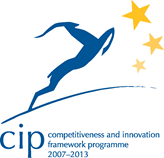How to Teach Computing: An Introduction to Concepts, Tools and Resources for Secondary Teachers
DigitalSkills

Welcome to the How to Teach Computing: An Introduction to Concepts, Tools and Resources for Secondary Teachers MOOC
On this page
Technology is everywhere, if we like it or not. And nearly all future jobs require us to understand it. To respond to this, governments are including computing in national curricula, as a subject taught at all ages but also as part of other subjects. This means the responsibility is on to us, the teachers, because we need to teach it. In the UK already every primary school teacher has to teach computing concepts and in many other countries more and more of us will be required to teach computing or at least integrate computing concepts, ideas and processes into the teacher of our subjects. So let's get ready for this.
If you are a Computer Science teacher who needs new ideas, tools or resources on how to teach your subject. If you are an Art teacher who suddenly has to talk about website design, user experience and user interfaces in your subject. If you are a Biology teacher who has to teach your students how to programme sensors taking important measurements in an experiment. This MOOC is here to help you. We will be exploring the ideas, concepts, processes and skills that are important in computing and then introduce you to the tools, resources and lesson activities that can help you teach these concepts and processes in the classroom.
The course is designed as an introductory course, for you to use as a starting point to explore some of the ideas and tools further. It is relevant to secondary teachers from all subjects and all levels of experience. A basic amount of knowledge on operating computers and other technology devices is expected but you don't need prior knowledge of computing. The course has been designed by teachers for teachers and will feature interviews, presentations, and activities from teachers, professors, students and computing professionals.
Learning objectives
- Understand why it is so fundamental to focus more on computing at schools
- Start developing an understanding of concepts, methods and ways of thinking that are relevant to Computing/li>
- Explore some examples of effective use of visual programming tools
- Reflect on how you engage girls in your classrooms and to come up with strategies to get more girls involved in computing
- Design a lesson plan using tools, ideas and resources presented on the course
You can download the course content here.
Prerequisites
The course is aimed at secondary school teachers but is open to anybody interested in the topic. While some of the activities presented in the course are more relevant for Computer Science teachers, the course is aimed at teachers from any subject. Some basic understanding on how to operate computers and software is required for this course.
Modules
- Module 1: Why teach computing at schools?
- Module 2: What and how are we teaching? Introducing concepts and methods
- Module 3: How to teach computing? Using visual programming tools
- Module 4: How to teach computing? Using game design tools & involving more girls
- Module 5: How to teach computing? Creating for mobile & preparing your Hour of Code
- Module 6: Final Project: Running your Hour of Code
Certification
After completing the entire course, participants receive a digital course certificate and a digital course badge.
Note to teachers from Portugal: You can get your successful participation in a European Schoolnet Academy course formally recognised as a valid continuous professional development, and thereby acquire the relevant number of training hours, by sending your certificate to the Conselho Científico e Pedagógico de Formação Contínua (CCPFC) at Rua do Forno, nº 30, 1º andar - apartado 2168, 4700 - 429 Braga, Portugal. For more information, please contact the CCPFC.
Course Staff
Disclaimer and Copyright
This publication has been produced with the assistance of the European Union. The contents of this publication are the sole responsibility of EUN Partnership aisbl and can in no way be taken to reflect the views of the European Union


All content on this course unless specified otherwise is licensed under a Creative Commons Attribution-ShareAlike 4.0 International License

